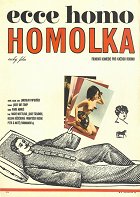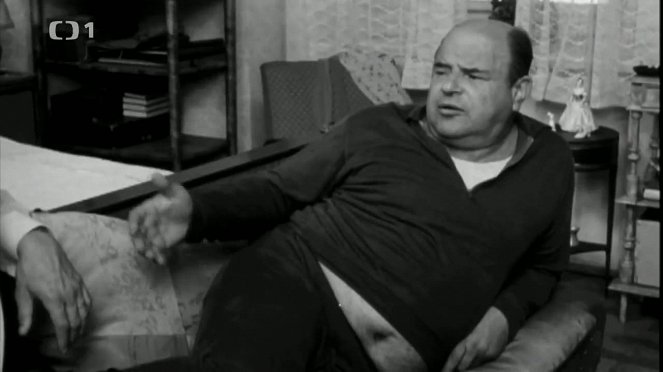Directed by:
Jaroslav PapoušekScreenplay:
Jaroslav PapoušekCinematography:
Jozef Ort-ŠnepComposer:
Karel MarešCast:
Josef Šebánek, Marie Motlová, František Husák, Helena Růžičková, Petr Forman, Matěj Forman, Yvonne Kodoňová, Miki Jelínek, Jiří Dědík, Růžena Pružinová (more)Plots(1)
It is a beautiful Sunday and the Homolka family are having a picnic in a forest not far from Prague. The grandfather and grandmother have settled comfortably in the grass, their son Ludva romps about in the river with his two young twin sons and his podgy wife Heduš dances among the trees, while the beer gets cooled in the water. A young couple embrace in the nearby bushes. A voice of a woman calling for help disturbs the idyll. Masses of people, unnoticed until now, begin to leave the forest in haste. The Homolka family returns to their shared flat in Prague. The meal, which would have been delicious in the forest, seems somewhat improvised at home. The grandmother, twins and Heduš set off for Chuchle to watch horse races. The grandfather gets ready to watch a game of football and Ludva, who could not persuade Heduš to join him in watching this "male" game, is forced to join his family on their excursion. He gets drunk at a stand in Chuchle and this has terrible consequences. Exhausted by the hangover, Ludva becomes a witness and co-conspirator in a number of disastrous squabbles and settling of wrongdoings among the members of his family. Their TV set breaks down, and the family is left to its own resources. The grandfather has to make the double bed after he has messed it up, and this ruins his high spirits after the football. The grandmother burns the steaks she was frying for dinner black. The Sunday is over. Heduš cries because she is fat and unhappy, the grandmother joins in, and the men are miserable to have made such failures of their marriages. The two couples finally dance to Beethoven's Ode to Joy, which is heard on the radio. (official distributor synopsis)
(more)Reviews (3)
A beautifully filmed holiday day of a city family. The parrot exactly in the style of the 1960s gave an unstylized and faithful presentation of the lives of "ordinary" people. The acting performances have already been recorded in the annals of Czech film - the archetypal beer drinker Josef Šebánek, chubby battle-ax Helena Růžičková, the whipped anorexic František Husák, the irresistible loving mother Marie Motlová and the cute kids performed by the young Formans... Many well-crafted and written situations and dialogues represent one of the best satirical portraits of traditional smudges on the Czech character. One of the best Czech comedies and another stone in the unique mosaic of the 1960s...
()
A terrifying, almost unwatchable horror film, like everything else with Papoušek’s signature under it in the sixties. Sheer brilliance in its description of "everyone else" in all its weak-willed, pathetic, meek, and self-abasing horror. A scene excellently crammed with small-town artifacts. Every time someone prompts nostalgia after a while, they see in it well-dressed men in ties, women in dresses sitting half in their seats, children playing with hula hoops, and neighbors greeting each other with a tip of the hat. Two-thirds of the people, however, have always looked like this, lived like this, and then fallen into oblivion. Anyone who sees themselves in this even a tiny bit has reason to weep. PS: the most beautiful women the Czech cultural scene has ever had to offer – Yvonne Kodoňová, Věra Křesadlová or Věra Chytilová – were all around the Czech New Wave, by the way. To spend an autumn afternoon with them in a convivial conversation over a bottle of wine... Dream, boy, dream.
()
Well, yeah, I got to this film really late, but I did. This is truly a beautiful portrayal of the Czech nature. It's sad, but even after almost fifty years, not much has changed. We all talk a lot of nonsense, but we hardly communicate with each other. Some lines are excellent, but the dark tone towards the end is quite harsh.
()

